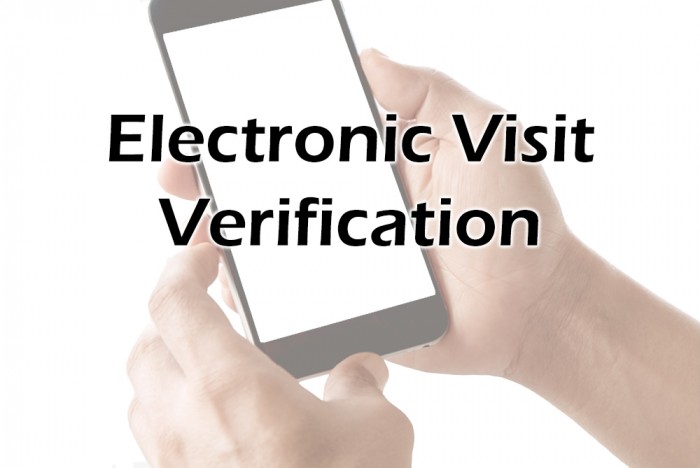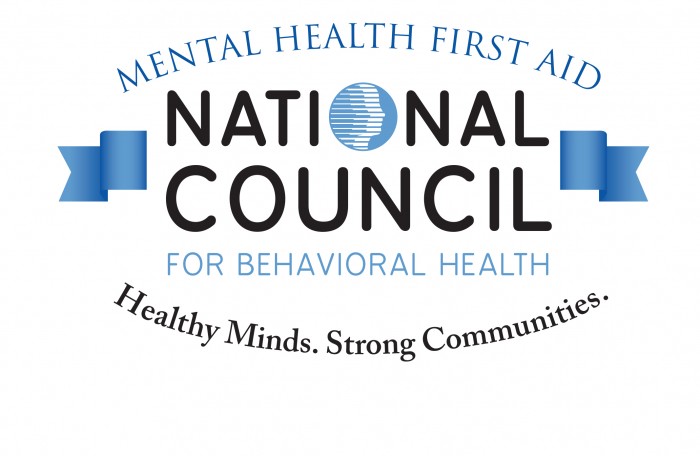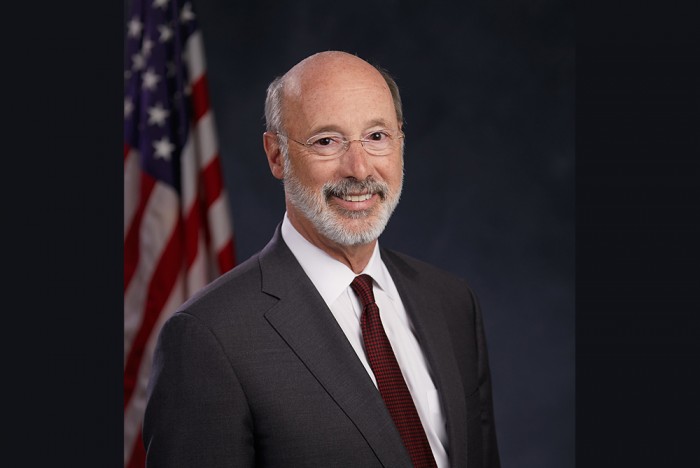In June 2020, the Office of Long-Term Living (OLTL) issued transition plans to phase out temporary changes to the OBRA Waiver and Act 150 Program via the OLTL Listserv. The transition plans direct the OBRA and Act 150 Program Service Coordinators (SCs) to resume performing face-to-face assessments and allow telephonic assessments when risk factors are present in the participant’s home. The transition plans also allow the SCs to make adjustments (additions or reductions) to service plans as determined by the participant’s assessment. On August 26, 2020, OLTL issued additional guidance for OBRA and Act 150 SCs as they resume face-to-face assessments. Questions about this information should be directed to the OLTL Provider Helpline at 800-932-0939.
DHS Delays Deadline for Compliance Requirements of Electronic Visit Verification
The Department of Human Services (DHS) recently announced they would be delaying the deadline for the compliance requirements of electronic visit verification (EVV) for personal care services (PCS) until January 1, 2021. No claims will be denied because of EVV until January 1, 2021; however, providers are encouraged to use their best efforts to continue to use EVV during this public health emergency (PHE). Providers using Alternate EVV who have not already reached out to begin this process must contact Sandata Alternate EVV support team by phone at 1-855-705-2407 or by email. As a reminder, this process began in August 2019, so if you have already reached out to Sandata to begin this process, you do not need to do so again.
The Alternate EVV certification process takes 4–6 weeks for completion. The Quick Reference Guide outlines the alternate EVV process and the required actions for providers, alternate EVV vendors, and Sandata throughout the eight-step process. All PCS providers must complete the EVV compliance audit survey. If you have already responded to the EVV compliance audit survey, you do not need to respond again.
Updated 2020 EVV Implementation Timeline:
- January 1, 2020 through December 31, 2020: All Providers must begin using EVV for PCS.
- Error Status Codes (ESCs) are in effect for claims submitted through PROMISeTM for services subjected to EVV.
- Providers should review the ESCs to identify whether claims are supported by EVV visits in the DHS Aggregator. These ESCs will assist providers in understanding when claims will deny beginning January 1, 202
- Additional information on ESCs can be found on the DHS EVV website and were also sent out via Listserv communications.
- January 1, 2021 and after: Claims submitted for PCS without a matching EVV visit will be denied.
For any questions related to EVV, please email the EVV resource account or visit the DHS EVV Website.
National Council Survey to Help Advocate for Funding
As the pandemic continues, so does our fight to secure financial relief on your behalf – but we need your help. Your shared experiences will underscore the importance of additional funding.
Help us make the strongest case possible on Capitol Hill – fill out this brief survey by Monday, August 31. Your input will help us advocate for the financial assistance you deserve.
Thank you for your support. Just a few minutes of your time will help pave the way for your organization — and others — to power through this pandemic. Questions? Contact us!
Programs and Resources for PA Families with Children During COVID-19 Crisis and Back-to-School Season
CARES Act Provider Relief Fund: For Providers, Phase 2
The US Department of Health and Human Services announced an extension of Phase 2 funding for the CARES Act through September 13, 2020. Under Phase 2, Medicaid and Children’s Health Insurance Program (CHIP) providers were allowed to apply for funding if they met specific criteria.
It is important to note that Act 24 of 2020 requires these funds to be expended by November 30, 2020 or returned to the Commonwealth. Additionally, these funds must be used for COVID-19 related expenses. Providers must keep documentation to prove that these funds were used for their response to the COVID-19 pandemic in case of an audit. Providers will be expected to provide a report on expenditures. Instructions on expenditure reporting will be provided in the future. Providers are advised to review guidance for eligible expenses on the US Department of Treasury website: Guidance. Here is a link to the updated FAQs; you can find the reference under Phase 2 – TIN Validation.
Wolf Administration Marks Progress on Baseline Universal Testing for Long-Term Care Facilities
FOR IMMEDIATE RELEASE
August 25, 2020
Harrisburg, PA – Department of Human Services (DHS) Secretary Teresa Miller today provided an update on universal baseline COVID-19 testing in DHS-licensed personal care homes, assisted living residences, and private intermediate care facilities.
To date, 1,160, or 85 percent of these facilities have completed universal baseline testing ahead of the August 31 deadline. With the help of the Regional Response Health Collaborative (RRHC) Program, these long-term care facilities are on pace to meet this deadline.
On June 26, Secretary of Health Dr. Rachel Levine signed an expanded testing order, directing personal care homes, assisted living residences, and private intermediate care facilities to test all residents and staff at least once by August 31. This order was based on a similar directive to nursing facilities licensed by the Department of Health that completed initial universal testing as of July 24.
“Nearly 47,000 Pennsylvanians live in personal care homes, assisted living residences, and private intermediate care facilities, and co-occurring medical conditions and age may make them more likely to experience complications if they contract COVID-19,” said Secretary Miller. “This baseline testing and the partnership of our Regional Response Health Collaboratives are helping facilities better assess presence of COVID-19 in their facilities and what they need to do to keep staff and residents safe, and I am grateful for the collaboration and partnership to keep us on pace to meet this deadline.”
Facilities that have completed the baseline testing to date can be found here, and cases reported at personal care homes and assisted living residences are available here. This data is updated every Tuesday. Data on cases at other DHS-licensed facilities is available by county here.
The RRHCs have been integral to helping facilities complete testing and meet this requirement, supporting the nearly 2,000 nursing facilities, personal care homes, assisted living residences, and private intermediate care facilities in Pennsylvania and the residents they serve.
Launched in late July, the RRHC program was established to provide clinical support, technical assistance, and education to long-term care facilities as they work to prevent and mitigate spread of COVID-19. Each RRHC is required to make a minimum of two on-site visits to each facility in their region, including an initial on-site assessment that will help the RRHC evaluate a facility’s COVID-19 prevention and mitigation strategies and their preparedness to respond to an outbreak if that were to occur. Based on this assessment, the RRHCs will help those facilities implement best practices in infection control, implement contact tracing programs in facilities, support clinical care through on-site and telemedicine services, and provide remote monitoring and consultation with physicians. RRHCs are in regular communication with DHS, the Department of Health, and the Pennsylvania Emergency Management Agency to report on experiences interacting with facilities, trends experienced by facilities, and potential challenges. The RRHCs and the regions they serve are:
- Southeast Region:
- Thomas Jefferson University in partnership with Main Line Health and Lehigh Valley Health Network
- University of Pennsylvania in partnership with Temple University Hospital, Inc.
- Northeast Region:
- Geisinger Clinic
- Lehigh Valley Hospital, Inc.
- Southcentral Region:
- The Pennsylvania State University
- Northcentral Region:
- Geisinger Clinic
- Southwest Region:
- UPMC Community Provider Services in partnership with Allegheny Health Network, the Jewish Healthcare Foundation, and the Hospital Council of Western PA
- Northwest Region:
- LECOM Health
- UPMC Community Provider Services in partnership with Allegheny Health Network, The Jewish Healthcare Foundation, and the Hospital Council of Western PA
When a RRHC engages with a facility or is called in to help with a concern identified from collaboration between DHS, DOH and PEMA daily calls, these are classified as missions. A mission could be anything from assistance with testing, assessing a facility’s preparedness, staffing support, rapid response deployment to facilities, PPE support, testing to ensure PPE is properly fitted, and questions or concerns requiring consultation. Since launching, the six RRHCs, comprised of 11 health systems, have been assigned more than 2,500 missions, primarily covering testing, consultations, facility assessments, and support with PPE. Specifically, the RRHCs have conducted 45 total rapid response team deployments, with 40 of those completed at this time. The rapid response teams are comprised of registered nurses, clinicians, epidemiologists, and infection control experts. Nearly 650 on-site facilities visits have occurred as the RRHCs work to assist long-term care facilities. The RRHCP call centers have received more than 500 calls to assist facilities with universal testing, staffing support, PPE and testing kits.
The RRHCs are also working with the Jewish Healthcare Foundation to operate a statewide learning network available to all long-term care facilities. This network holds regular webinars on topics related to infection control and the latest guidance for responding to and mitigating spread of COVID-19. These webinars have reached more than 1,800 participants since the start of the RRHC program.
“Signs and symptoms of COVID-19 could arise at any point, and for people living and working in a long-term care facility, careful planning, quick action, and proper mitigation efforts could be the difference between isolated cases and an outbreak,” said Secretary Miller. “The Regional Response Health Collaboratives exist to be a resource to long-term care providers if they need real-time technical assistance and clinical support or to help fortify response plans so providers know they are not alone in this effort to protect the people they serve.”
For more information on guidance to DHS’ providers related to COVID-19, visit www.dhs.pa.gov.
MEDIA CONTACT: Erin James, ra-pwdhspressoffice@pa.gov
# # #
APA Extensions: Crucial for Care of Vulnerable Populations
As the September 1, 2020 date approaches for the HealthChoices BH-MCOs to declare their intentions on the continuation of the Alternative Pay Agreements (APAs), RCPA is releasing the Member APA recommendations.
These recommendations were formulated through a member survey which represented RCPA member programs that serve thousands of Pennsylvania most vulnerable citizens.
RCPA APA Recommendations
- All BH MCO APAs be extended to December 31, 2020, at a minimum;
- A uniform APA reconciliation process across all BH-MCOs;
- Provider engagement in future APA rate discussions;
- Revised APA rate calculations based upon 2020 service delivery; and
- Development of quality indicators for future performance-based rates.
RCPA and its members applaud the HealthChoices BH-MCOs and OMHSAS’ financial response at the onset of the pandemic by creating Alternative Pay Agreements (APAs). It is RCPA’s hope that all BH-MCOs will continue to pay the APAs to providers, to ensure continuation of the multitude of services being delivered under Governor Wolf’s Disaster Declaration.
RCPA will continue its work with all stakeholders to ensure that providers are able to continue to meet and treat the needs of all consumers and families.

















